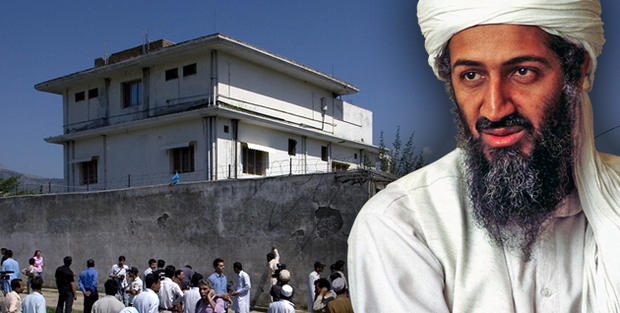Debate continues over role of waterboarding in gathering bin Laden intel
Various accounts of the intelligence gathering that led to the death of Osama bin Laden gave rise to the suggestion on Monday that the mission to kill the al Qaeda leader was successful in part because of the "enhanced interrogation techniques" the U.S. used on some terrorism detainees.
Since then, however, the White House, some leaders in Congress and former Defense Secretary Donald Rumsfeld have all played down the notion that waterboarding or other "enhanced" techniques aided the mission. At least one congressman, however -- Rep. Peter King (R-N.Y.) -- maintains that waterboarding helped.
"The fact is that no single piece of information led to the successful mission that occurred on Sunday," White House Press Secretary Jay Carney said in a press briefing Tuesday. Multiple detainees provided insights, Carney said, and those insights were "just a slice of information" intelligence analysts gathered and used to track bin Laden.
Carney said it was "simply strange... to suggest a piece of information that may or my not have been gathered eight years ago somehow led to a successful mission on Sunday."
He added that there has been "no change whatsoever" to President Obama's opposition to the use of enhanced interrogation techniques.
The question of the role such techniques played in this mission arose after the Associated Press reported that it was two key detainees -- Khalid Sheikh Mohammed and Abu Faraj al-Libi -- who gave American officials the nickname of a courier who ultimately led U.S. intelligence officials to bin Laden. The two detainees reportedly gave the information up at foreign CIA "black sites," where waterboarding occurred.
However, the AP fleshed out its report later in the day. Citing unnamed former officials, the AP wrote, "Mohammed did not discuss al-Kuwaiti while being subjected to the simulated drowning technique known as waterboarding... He acknowledged knowing him many months later under standard interrogation."
Sen. Dianne Feinstein (D-Calif.), chair of the Senate Intelligence Committee, backed up the assertion today that waterboarding did not play a role in the sting against bin Laden.
"To the best of our knowledge based on a look, none of it came as a result of harsh interrogation practices," she said.
She added with respect to the usefulness of waterboarding -- a practice the U.S. historically considered to be torture: "I happen to know a good deal about how those interrogations were conducted, and in my view, nothing justifies the kind of procedures that were used."
"The initial information on the courier was obtained by waterboarding back in 2003," King said on Fox News today. "I've spoken to people who are very familiar with the situation. They have first-hand information... I'm telling you that people who were on the ground, people who are in a position to know, they told me that."
U.S. intelligence officials told reporters Sunday night that they finally learned the courier's real name four years ago, years after learning his nickname from the detainees. As Wired's Spencer Ackerman points out, by that time, President Bush had already ceased waterboarding and shuttered the black sites, moving Mohammed, al-Libbi and other detainees to the prison at Guantanamo Bay.
In an interview Monday, Rumsfeld said that "no one was waterboarded at Guantanamo Bay."
"It is true that some information that came from normal interrogation approaches at Guantanamo did lead to information that was beneficial in this instance," he said with respect to the death of bin Laden. "But it was not harsh treatment and it was not waterboarding."

